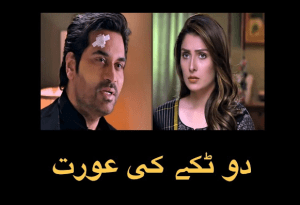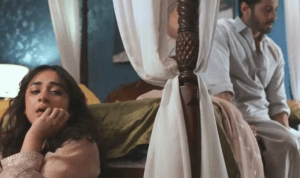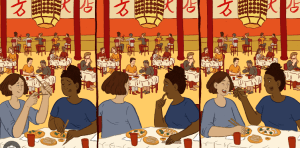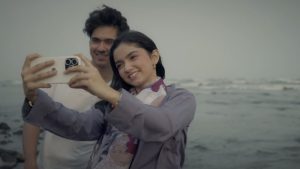Twitter wars after the airing of an episode from a renowned drama are a normal feature these days. Audiences like to engage in a dialogue more so than ever which is a constructive element of the social media invasion yet drama marketers seem to have exploited that discourse as well.
‘Meray Paas Tum Hou‘ proved to be a great case study to understand that problematic themes can lead to an unparalleled amount of social media noise which leads to greater profits for drama makers. However the internalization of the themes can further problematic behaviors and reinforce stereotypes. It’s astounding that when a woman cheats on her husband in a drama, it becomes a national sensation yet most dramas featuring cheating husbands are never an issue because ‘Mard tou aisay hi hain‘.
Submissive and weak women continue to be the main leads while the independent women with western clothing is yet again the negative character. Funny how everyone knows the names of the writers of such dramas by heart and yet not know where the problem lies.

The glorification of obsessive male leads and romanticizing such characters continues till date as can be seen with Murtasim in ‘Tere Bin‘. Whether it’s Murtasim aggressively holding his wife Meerab or the recent debate around the portrayal of ‘marital rape’ in the drama, what is clear is that such problematic themes lead to more conversation around the drama translating into better profits for drama makers and furthering the urge among actors to choose such characters again and again.

A famous actor known for playing such roles was once questioned whether he thinks it’s his responsibility to educate the masses to which he answered it’s my duty to entertain. This goes to show a lot about the state of our entertainment industry. It’s true that the audiences and their response make a drama great or popular yet there is no way a public figure doesn’t need to to be accountable for the characters they play.
People often counter this argument by saying that characters should be treated as characters. True, however making a hero out of a problematic, misogynist and toxic character embeds into the onlookers thought process translating into the perpetuation of regressive gender stereotypes that are not only harmful for women but men as well.
People continue to take this topic lightly thinking that the ‘feminists’ have an agenda behind furthering such narratives. However no one really questions the increase of the unreported and reported cases of violence against women and abuse that continue to break records.
This topic has been greatly researched by academic writers, be it the social learning theory by Albert Bandura or Cultivation theory by George Gerbener, all well researched studies agree with problematic themes having a significant effect on the viewer’s beliefs.

Yet we wait for the next ‘Ishqiya‘ and do nothing more than act like keyboard warriors.
We are all at fault.









